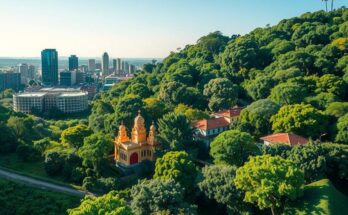The article discusses the severe violence in Syria following the anticipated fall of President Bashar al-Assad, marked by the massacre of Alawites by Sunni fighters. Eyewitness accounts depict horrendous scenes and the mass displacement of civilians. The future of Syria hangs in the balance as President Ahmed al-Sharaa contemplates alliances, particularly with the Kurds, to unify the country amidst ongoing turmoil.
In December, following the anticipated downfall of President Bashar al-Assad, Syria witnessed a devastating bloodbath. On March 6th, calls for jihad resonated from mosques, prompting thousands of Sunni fighters to attack Alawite communities along the coast. This resulted in a massacre, wherein hundreds of Alawites were killed, as the attackers sought retribution for decades of oppression under the Assad regime. Eyewitnesses reported gruesome scenes of violence and destruction, leaving streets littered with corpses and homes engulfed in flames. Following these attacks, countless Syrians sought refuge in forests and neighboring Lebanon, with estimates suggesting over 800 fatalities, including many civilians.
This harrowing situation has left the nation in disarray, raising questions regarding the potential for reunification under President Ahmed al-Sharaa’s leadership. As atrocities persist, it is crucial for the president to explore strategic alliances, particularly with the Kurdish factions, to strengthen his political stance and govern effectively. The future of Syria hinges on whether al-Sharaa can navigate the complexities of a fractured society amid ongoing violence, as calls for unity grow louder.
The violence that erupted in Syria following President Bashar al-Assad’s regime underscores the dire humanitarian crisis the nation faces. As President Ahmed al-Sharaa seeks to restore order and govern, alliances with the Kurdish community may prove pivotal. Moving forward, addressing the fractured dynamics within Syria will be essential for the country’s future stability and unity amid the chaos of recent events.
Original Source: www.economist.com




